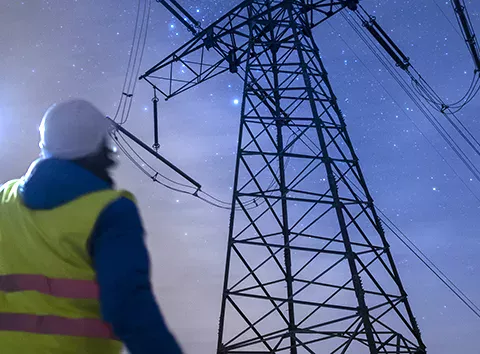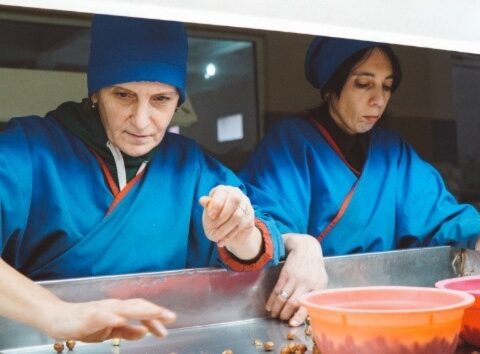Signing a joint declaration during the first Finance in Common summit today, the President of the European Bank for Reconstruction and Development (EBRD), Odile Renaud-Basso, said: “The Covid-19 crisis has demonstrated that only joint action allows us to address the most urgent global challenges effectively and efficiently. In overcoming the crisis, our goal must be to build economies that are sustainable, resilient and inclusive.”
At its 2020 Annual Meeting in October, the EBRD adopted a new strategy for the next five years that will see more than 50 per cent of its annual investment dedicated to green finance by 2025. The Bank’s Green Economy Transition (GET) approach for the period 2021-25 also commits the EBRD to focusing on alignment with the Paris Agreement goals, with a decision on full alignment to be considered within the next two years.
In implementing GET for 2021-25, the EBRD will also pay particular attention to the social implications of change. The importance of a just transition, in which no one is left behind as carbon-intensive industries are reshaped, as well as its implications for gender, will be carefully examined. More broadly, the EBRD’s new strategy also emphasises stepping up work on equality of opportunity. Another focus is the enhancement of policy engagement to develop long-term decarbonisation and resilience pathways.
As the world moves into a crucial period for climate action – the decade identified in the 2018 IPCC report as the time in which key changes must be made to keep global temperature rises below 2C – aligning different organisations’ approaches and metrics becomes ever more vital for success in moving towards a low-carbon future. Building closer partnerships at country and sector level as well as with multilateral development banks and other institutional partners is at the core of the GET approach for 2021-25.
The EBRD’s new green goals are based on the success of an already ambitious approach that took EBRD green investments to more than 40 per cent of the Bank’s total annual investment in 2019, from an average of 24 per cent in the decade to 2015.
The EBRD is pursuing its green strategy while continuing to offer short-term support to its regions and clients to address the implications of Covid-19. All investments in 2020-21 are already committed to helping counter the economic effects of the pandemic. While in the short term the need for liquidity takes priority over all other investment considerations, the EBRD’s new green approach looks further forward to prepare for the post-crisis economic recovery.
In the joint declaration signed today the public development banks “commit to support the transformation of the global economy and societies towards sustainable and resilient development”. The signatories stress their “determination to collectively shift our strategies and operations”. They commit to enhancing the crowding-in of private investment, to working to increase the scale and sustainable development impact of private financial flows, and to fostering capital market development and the alignment of these markets with the SDGs and the Paris Agreement through innovative approaches, alternative finance and blended finance. Overcoming the coronavirus is only a first step towards addressing long-term challenges such a climate change through “building back better”.
EBRD President Renaud-Basso took part in the conference on a panel about the role of multilateral development banks as investors. She emphasised that the Bank’s investments aim to advance the Sustainable Development Goals. “We help countries make the transition to modern and sustainable market economies,” she said.
The Finance in Common Summit groups more than 450 institutions. It stresses stress the crucial role of public development banks in reconciling short-term responses to the crisis with sustainable recovery measures that will have a long-term impact on the planet and societies. It seeks to contribute substantially to the success of the UN SDG’s Decade of Action by rallying a new and significant global community with enhanced capacity for action, and by promoting sustained collective action.





